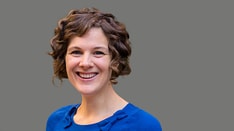Microbial fermentation may interact with health through multiple different biological pathways. It can enhance the nutritional composition of the final food, create bioactive compounds, and change the composition of the gut microbiota (potentially outcompeting harmful pathogens). The lactic acid bacteria in fermented food might also help to influence your immune system and strengthen your intestinal barrier. Some fermented foods, like tempeh, also contain prebiotics; these are fibers that escape your digestion and are broken down by your gut bacteria, including your lactic acid bacteria, which feed off prebiotic fiber to help grow their colonies. In a recent diet experiment, a high-fiber diet was compared with a diet high in fermented foods (eg, yogurt, fermented vegetables, kefir, fermented cheese); those who ate higher fermented food had lower markers of inflammation and an increased diversity of gut microbiota (which is thought to be a good thing in adults). So, in theory, fermented foods sound good.
https://www.medscape.com/viewarticle/967385
Sweetener Reformulated Biscuits : Step-by-Step Recipe Discover a healthier twist on your favorite biscuits with our sweetener reformulated recipe. Perfect for those looking to reduce sugar intake without compromising on taste! Ingredients: Dry Ingredients: 2 cups whole wheat flour 1 tsp baking powder 1/2 tsp salt Wet Ingredients: 1/2 cup unsweetened applesauce 1/4 cup vegetable oil 1/2 cup Stevia or preferred sweetener 1 tsp vanilla extract Instructions: Preheat Oven: Set your oven to 350°F ( 175°C ). Mix Dry Ingredients: In a large bowl, combine flour, baking powder, and salt. Blend Wet Ingredients: In another bowl, mix applesauce, oil, sweetener, and vanilla until smooth. Combine: Gradually add wet ingredients to dry ingredients, stirring until just combined. Shape Dough: Roll out the dough on a floured surface and cut into desired shapes. Bake: Place on a baking sheet and bake for 12-15 minutes or until golden brown. Cool and Enjoy: Let the biscuits cool before serving. More info:...

Comments
Post a Comment